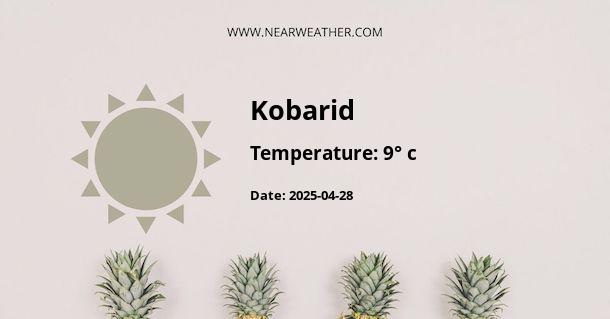Kobarid, Slovenia: A Comprehensive Guide to the Climate and Weather
Overview of Kobarid's Climate
In the heart of the Julian Alps, Kobarid, Slovenia, boasts a climate heavily influenced by its mountainous terrain and proximity to the Adriatic Sea. Known for its stunning natural beauty and historical significance, Kobarid experiences a transitional climate that combines elements of the continental and Mediterranean climate zones. As such, this region displays varied weather patterns that are both fascinating and complex.
Seasonal Weather Patterns
Winter (December to February)
- Temperature: Average lows hover around -2°C (28°F), while daytime highs can reach 5°C (41°F) on sunnier days.
- Precipitation: Snow is common, with a higher probability of snowfall at altitudes above 800 meters.
- Daylight: Shorter days are characteristic, with an average of 8 to 9 hours of daylight.
Spring (March to May)
- Temperature: Temperatures gradually rise from cool to mild, with March lows around 1°C (34°F) and May highs often exceeding 18°C (64°F).
- Precipitation: Increased rainfall occurs, signaling the start of the wet season. Statistically, May is one of the wettest months.
- Daylight: Daylight hours increase significantly, ranging from around 10 to 15 hours of daylight towards the end of the season.
Summer (June to August)
- Temperature: Warmest time of the year, with average temperatures ranging from a low of 14°C (57°F) to highs above 25°C (77°F).
- Precipitation: While rainfall is common, severe storms and heavy downpours can occur, peaking in early summer.
- Daylight: Long, sunny days with up to 15 hours of daylight provide ample time for outdoor activities.
Fall (September to November)
- Temperature: A gradual cooling trend marks the autumn, with September highs around 20°C (68°F) dropping to November lows near 3°C (37°F).
- Precipitation: Rainfall decreases through the season, but October can still be quite wet.
- Daylight: Daylight hours decrease from around 13 hours in early fall to 9 hours by late November.
Annual Weather Averages
The annual temperature in Kobarid typically ranges from -2°C to 25°C. Annual precipitation averages around 1,400mm, with considerable variability due to microclimates created by the complex topography.
Monthly Climate Data and Trends
| Month | Temperature (°C) | Precipitation (mm) | Daylight Hours |
|---|---|---|---|
| January | -2 to 3 | 90 | 8-9 |
| February | -1 to 5 | 80 | 9-10 |
| March | 1 to 10 | 100 | 11-12 |
| April | 5 to 15 | 110 | 12-14 |
| May | 9 to 20 | 120 | 14-15 |
| June | 14 to 24 | 130 | 15-16 |
| July | 16 to 26 | 100 | 15-16 |
| August | 15 to 25 | 120 | 14-15 |
| September | 12 to 20 | 140 | 12-13 |
| October | 7 to 15 | 160 | 10-11 |
| November | 2 to 9 | 150 | 9-10 |
| December | -1 to 4 | 120 | 8-9 |
Geographical Influences on Weather
The unique positioning of Kobarid near the Italian border, wedged between the Julian Alps to the north and the Adriatic Sea to the south, creates a dynamic weather pattern. Orographic lift, whereby moist sea air rises over the mountains, often increases precipitation in the surrounding areas. This topographical influence makes forecasting for Kobarid particularly challenging, as localized weather phenomena may arise.
Weather Hazards
- Avalanches: During the winter months, avalanches are a significant risk in the mountainous regions around Kobarid.
- Flash flooding: Sudden and intense rainfall can lead to flash floods, particularly in narrow mountain valleys.
- Storms: Summer storms can bring heavy rainfall and lightning, posing risks for hikers and outdoor enthusiasts.
Climate Change Considerations
Climate change has had observable effects on Kobarid's weather patterns. Increased temperatures and changing precipitation patterns are leading to alterations in snow-cover duration and quantity, which impacts local ecosystems and water resources. Adaptation and resilience planning are critical to address the risks associated with such climate variability.
Best Time to Visit Kobarid
The optimal time to visit Kobarid largely depends on the intended activities. For hiking and exploring the emerald Soča River, the late spring to early fall months (May to September) offer the most amenable weather conditions. Winter sports enthusiasts will find the winter season, especially January and February, to be ideal for skiing and snowboarding in nearby resorts.
Conclusion and Tips for Travelers
When planning a trip to Kobarid, it is advisable to consider the seasonal weather conditions and pack accordingly. Always prepare for precipitation and cooler temperatures in the mountains, even during summer. Monitoring local weather forecasts is also recommended to stay aware of any potential weather hazards that may affect your travel plans or outdoor activities.
In conclusion, Kobarid's weather is as diverse and captivating as its landscape. Understanding the intricate balance of continental and Mediterranean influences that define this region's climate will enrich any visitor's experience and appreciation of this mesmerizing corner of Slovenia.
A - Kobarid's Latitude is 46.248058 & Longitude is 13.577220.
A - Weather in Kobarid is 9° today.
A - Climate Conditions in Kobarid shows clear sky today.
A - Humidity in Kobarid is 43% today.
A - Wind speed in Kobarid is 10.69 km/h, flowing at 36° wind direction. today.
